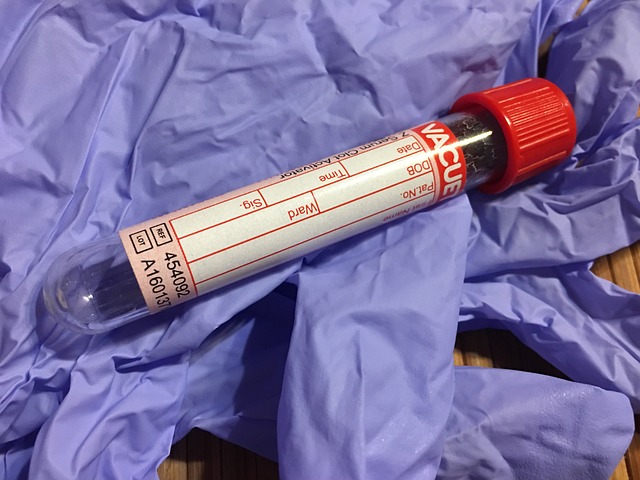In the UK, vitamin D deficiency is a growing concern due to limited sunlight and increased indoor time. It impacts bone health, immune function, and overall well-being. A simple UK Vitamin D Blood Test measures 25-hydroxyvitamin D levels (75-100 nmol/L optimal), with at-home testing offering convenience and non-invasive results within a week. Results guide individuals to manage their health by identifying deficiencies and taking corrective actions, reducing the risk of associated health issues. Ordering a UK Vitamin D Blood Test is easy through online clinics or pharmacies.
Staying healthy at home has never been more accessible with advanced health tests readily available. Among them, the UK Vitamin D Blood Test stands out as a crucial tool for assessing your vitamin D levels. This article delves into the significance of vitamin D deficiency in the UK and how home testing can empower individuals to take charge of their health. We’ll guide you through the process, from understanding the test’s impact to interpreting results, ensuring you make informed decisions about your well-being.
- Understanding Vitamin D Deficiency and Its Impact in the UK
- The Benefits of Conducting a Home Blood Test for Vitamin D Levels
- A Comprehensive Guide to Ordering and Interpreting Your UK Vitamin D Blood Test Results
Understanding Vitamin D Deficiency and Its Impact in the UK
In the UK, vitamin D deficiency is a growing concern due to various factors, including limited sunlight exposure during colder months and increased time spent indoors. This condition, often overlooked, can have significant health implications. Vitamin D plays a crucial role in bone health by aiding calcium absorption, which is essential for maintaining strong bones and muscles. However, its benefits extend beyond skeletal health; it also supports immune function, muscle strength, and overall well-being.
A UK Vitamin D Blood Test is a simple and effective way to determine if an individual has sufficient vitamin D levels. This test involves taking a small sample of blood to measure the concentration of 25-hydroxyvitamin D (25(OH)D), which indicates the body’s vitamin D status. Results can vary, with optimal levels typically ranging from 75 to 100 nmol/L for optimal health and bone protection. Those at higher risk of deficiency may require supplementation to maintain adequate vitamin D levels, thereby reducing the risk of associated health issues and promoting overall well-being in the UK population.
The Benefits of Conducting a Home Blood Test for Vitamin D Levels
Conducting a home blood test for vitamin D levels offers several significant advantages, especially in the UK where vitamin D deficiency is prevalent. This non-invasive method allows individuals to conveniently monitor their vitamin D status from the comfort of their homes. With a simple finger prick, users can obtain accurate results, providing valuable insights into their overall health and well-being.
For many, a UK Vitamin D Blood Test serves as a powerful tool for proactive healthcare. It enables people to identify potential deficiencies early on, ensuring prompt corrective actions like dietary changes or supplementation. This is particularly important given the role of vitamin D in bone health, immune function, and overall physiological processes. By regularly testing at home, individuals can stay informed, maintain optimal levels, and reduce the risk of associated health issues.
A Comprehensive Guide to Ordering and Interpreting Your UK Vitamin D Blood Test Results
Ordering a UK Vitamin D Blood Test is a straightforward process, often available through online clinics or local pharmacies. Upon receiving your test kit, you’ll need to follow the instructions carefully. This typically involves pricking your finger for a small blood sample and returning it to a lab for analysis. Results usually arrive via email within a week, accompanied by an easy-to-understand interpretation guide.
Interpretation is key to understanding your UK Vitamin D Blood Test results. Levels are measured in nanomoles per litre (nmol/L). The optimal range for vitamin D is 50-125 nmol/L, indicating sufficient levels for overall health. Levels below 50 nmol/L suggest deficiency and may require supplementation. It’s important to remember that individual needs can vary based on factors like age, lifestyle, and existing health conditions.
In conclusion, understanding vitamin D deficiency and its impact in the UK is a crucial step towards maintaining health at home. Conducting a simple UK vitamin D blood test can provide valuable insights into your levels, enabling you to take proactive measures. By following a comprehensive guide to ordering and interpreting test results, individuals can easily navigate this process and ensure optimal wellness. The benefits of home testing are significant, allowing for timely interventions and promoting overall well-being.
